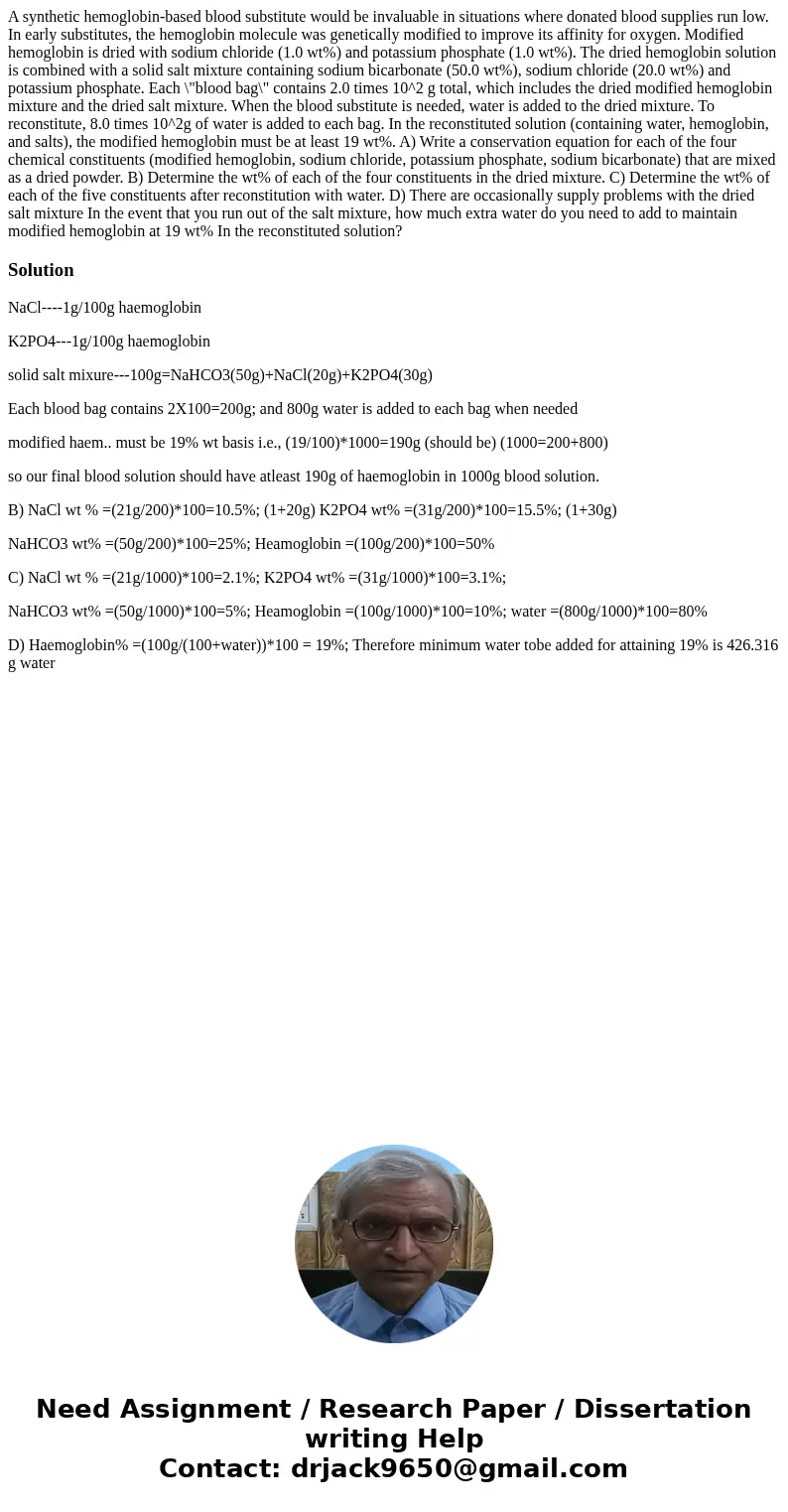A synthetic hemoglobin-based blood substitute would be invaluable in situations where donated blood supplies run low. In early substitutes, the hemoglobin molecule was genetically modified to improve its affinity for oxygen. Modified hemoglobin is dried with sodium chloride (1.0 wt%) and potassium phosphate (1.0 wt%). The dried hemoglobin solution is combined with a solid salt mixture containing sodium bicarbonate (50.0 wt%), sodium chloride (20.0 wt%) and potassium phosphate. Each \"blood bag\" contains 2.0 times 10^2 g total, which includes the dried modified hemoglobin mixture and the dried salt mixture. When the blood substitute is needed, water is added to the dried mixture. To reconstitute, 8.0 times 10^2g of water is added to each bag. In the reconstituted solution (containing water, hemoglobin, and salts), the modified hemoglobin must be at least 19 wt%. A) Write a conservation equation for each of the four chemical constituents (modified hemoglobin, sodium chloride, potassium phosphate, sodium bicarbonate) that are mixed as a dried powder. B) Determine the wt% of each of the four constituents in the dried mixture. C) Determine the wt% of each of the five constituents after reconstitution with water. D) There are occasionally supply problems with the dried salt mixture In the event that you run out of the salt mixture, how much extra water do you need to add to maintain modified hemoglobin at 19 wt% In the reconstituted solution?
NaCl----1g/100g haemoglobin
K2PO4---1g/100g haemoglobin
solid salt mixure---100g=NaHCO3(50g)+NaCl(20g)+K2PO4(30g)
Each blood bag contains 2X100=200g; and 800g water is added to each bag when needed
modified haem.. must be 19% wt basis i.e., (19/100)*1000=190g (should be) (1000=200+800)
so our final blood solution should have atleast 190g of haemoglobin in 1000g blood solution.
B) NaCl wt % =(21g/200)*100=10.5%; (1+20g) K2PO4 wt% =(31g/200)*100=15.5%; (1+30g)
NaHCO3 wt% =(50g/200)*100=25%; Heamoglobin =(100g/200)*100=50%
C) NaCl wt % =(21g/1000)*100=2.1%; K2PO4 wt% =(31g/1000)*100=3.1%;
NaHCO3 wt% =(50g/1000)*100=5%; Heamoglobin =(100g/1000)*100=10%; water =(800g/1000)*100=80%
D) Haemoglobin% =(100g/(100+water))*100 = 19%; Therefore minimum water tobe added for attaining 19% is 426.316 g water

 Homework Sourse
Homework Sourse